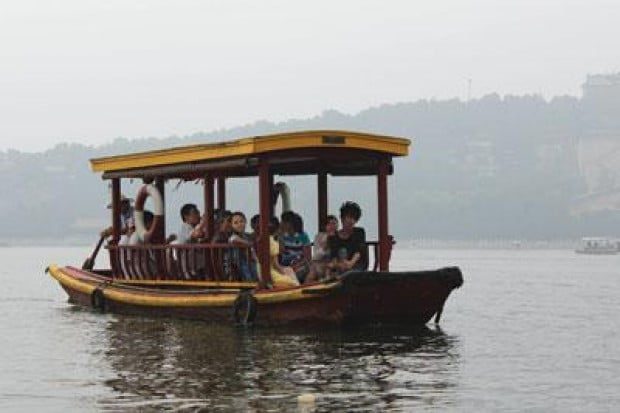
Editor’s note: The Malibu Times’ resident fashion expert Andrea Park has moved to Beijing, China, and will be filing regular observations about life abroad.
While passing through Seoul in May, I was talking to an acquaintance about my upcoming move to Beijing. “I love Beijing,” he said. “It’s so … it’s so … it’s so Chinese!” This may not sound very articulate or smart, but there really is no other way to describe Beijing. Despite the city’s constant demolitions and renovations, Beijing has always managed to preserve its essence and idiosyncrasies; the facelifts are superficial, and Beijing still clings stubbornly to its traditions and habits.
One month ago, when I arrived at Beijing Capital Airport, I took a cab to my hotel and was astonished to realize I barely recognized the city where I studied five years earlier. The buildings and roads seemed completely unfamiliar, but as we approached the city center, I saw the drum tower I remembered so fondly. This majestic structure was built in the 1200s and it soars over Houhai Lake, a thriving tourist area in the city lined with bars and restaurants. I sighed with relief. “It’s still Beijing,” I reassured myself. A few minutes later, we drove by a man in a tank top who had his finger pressed against one nostril. I watched him tilt his head back and shoot his snot mid-air with the precision and speed of an expert archer. “Oh, they still do that,” I said to myself. “This is definitely still Beijing.” The city of Beijing aggressively campaigned against this sort of behavior (including spitting and line-cutting) when it was preparing for the 2008 Olympics, but only to minor success. People will occasionally form lines, but they’re often triple-file, at best. The disorder of Beijing can be jarring for many expatriates, and I will readily admit that this includes myself.
My transition into Beijing was not as smooth as I had anticipated. I had such a wonderful time in the city in 2007 that I had blocked out aspects that I hated. I had forgotten about the spitting and nose-picking, squat toilets, smog and atrocious customer service. I forgot about the stench of the fermented dish “stinky tofu” that pervades certain streets. Two weeks into my move, during my morning commute I stood in the subway with my face crammed into somebody’s hair, while somebody else’s face was crammed into my hair, wondering why I moved to Beijing at all.
But the next day—Friday—was a national holiday and my roommate and I decided to go to Summer Palace, a UNESCO World Heritage Site and the former playground of Chinese royalty, to have a picnic on a boat. I left my apartment in Beijing’s bustling center on the same subway I take to work, again sandwiched so firmly between passengers that I didn’t need to hang onto a strap for balance. But in less than an hour, I emerged from underground and arrived at one of the places that made me fall in love with Beijing in the first place.
Even on a gray, smoggy day—maybe especially so—Summer Palace looks like it was painted from a dream. The grounds seem to roll on forever, dotted with vibrant buildings, beautiful bridges and even a marble boat. My friends and I, along with hundreds of other people, rented a boat to take onto Kunming Lake on that unbearably hot day. As we shut the motor off and feasted on the best tomato and mayonnaise sandwiches this side of the planet and chicken-flavored Cheetos (only available in China), we glided across the peaceful lake as we passed lush lotus plants and pretty little bridges. On this lake, we enjoyed probably the only breeze to be felt in Beijing that day. It’s easy to see why the last empress of China, Empress Dowager Cixi, spent so much time at her summer home.
What is so remarkable about Beijing is that Summer Palace is only one of many breathtaking sites in the city proper—the same city that boasts cutting edge architecture and the famous Olympic Bird’s Nest Stadium. If you work in the center of the city, you could easily stop by a world-famous landmark during lunch; you can take the subway to almost all of the major sights Beijing is known for, except for the Great Wall, which is outside the city.
After my idyllic picnic, I ambled back to my apartment, packed a bag and took a plane to Shanghai that evening, where I was shocked to encounter English speakers and mostly Western toilets—and not a single tissue-less nose blower in sight. Shanghai is opulent and modern, but it lacked the te’se—the Chinese word for “distinguishing characteristic”—of Beijing. It just wasn’t so…well, it just wasn’t so Chinese.
